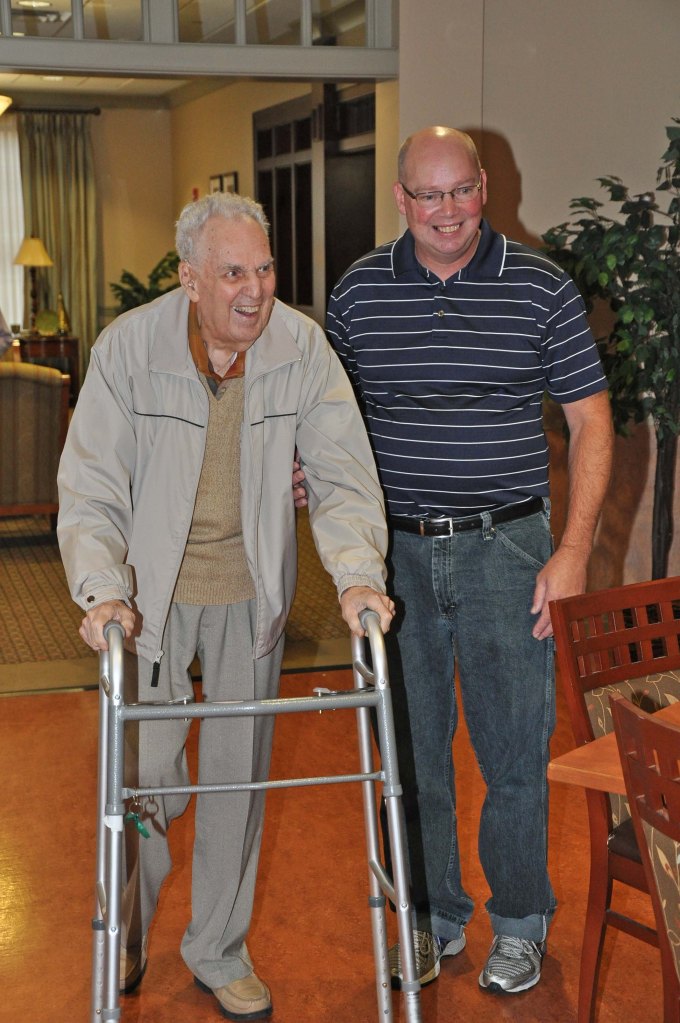This holiday season, amid the refrains of joy and decking the halls, I keep hearing echoes of loss and separation. I’m sure it’s always been there; maybe I’m just more aware this year.
A friend is spending her first Christmas without her mom following a long battle with cancer. The hole she left behind still gapes, and somehow the Christmas music blaring over store loudspeakers sounds tinny and hollow this season. Another friend is figuring out to get into the holiday spirit now that she’s separated from her husband by an ocean and a nine-month assignment in a place where IEDs are as common as inflatable lawn ornaments. And I think of my friend Ruth, who is separated from her husband by the chasm of Alzheimer’s disease. This is the 61st Christmas they’ve spent together, but the first one when Bob doesn’t know her.
Maybe it’s the twinkle of lights or yet another chorus of “I’ll Be Home for Christmas,” but for whatever reason, the sting of separation seems even more poignant now than it is the other 11 months.
Until this year, I’d never thought of Romans 8 as a particularly Christmasy passage. But when you come down to it, Christmas is God’s answer to our longing for a love that will always stay with us. A love that will never be separated by oceans or war or distance or betrayal or disease or death.
When God sent Jesus to our world, it was his way of saying, “This is my gift to you: my love in human form.” Love that is unconditional, inseparable, unchanging, never-to-be-lost.
I am convinced that nothing can ever separate us from God’s love. Neither death nor life, neither angels nor demons, neither our fears for today nor our worries about tomorrow—not even the powers of hell can separate us from God’s love. No power in the sky above or in the earth below—indeed, nothing in all creation will ever be able to separate us from the love of God that is revealed in Christ Jesus our Lord.
—Romans 8:38-39
This Christmas, whether you find yourself with the ones you love or feeling far away for any number of reasons, know that nothing can ever separate you from God’s love. Nothing.
You may even want to take a moment under the twinkling lights to fill in this verse with the things that threaten to color your Christmas in shades of blue. As you do, I pray you will be filled with the assurance that none of these things are a match for God’s love.
I am convinced that nothing can ever separate us from God’s love. Neither _____ nor _____, neither _____ nor _____, neither our fears about _____ nor our worries about _____—not even the powers of _____ can separate us from God’s love. No power in heaven or in hell—indeed, nothing in all _____ will ever be able to separate us from the love of God that is revealed in Christ Jesus our Lord.
I’ve taken the challenge of reading the Bible chronologically this year and tracing the thread of grace through it. These musings are prompted by my reading. I’d love to have you join me: One Year Bible reading plan.






